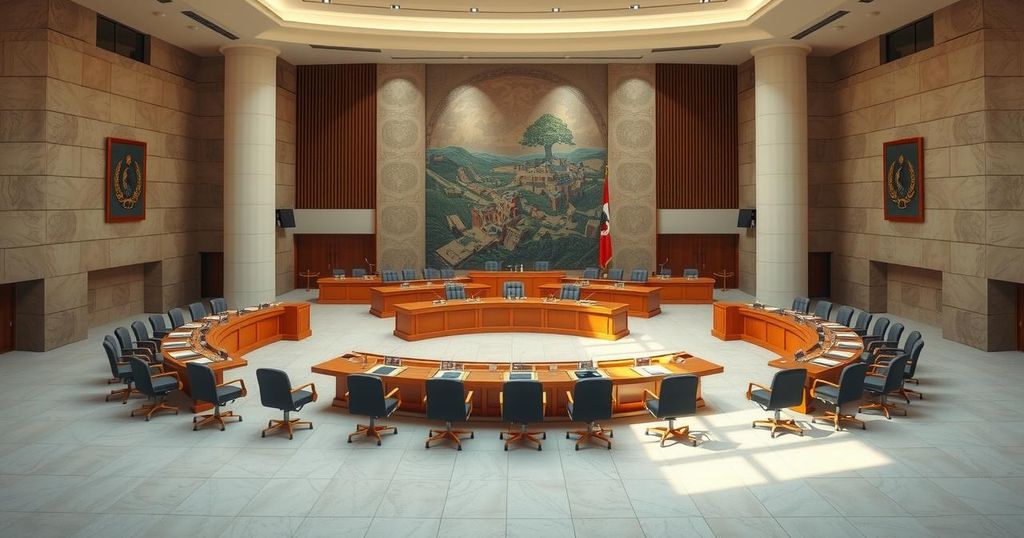President Trump plans to halt funding to South Africa over concerns about land seizures under a new law by President Ramaphosa. This law allows for land acquisition without compensation, stirring debates about historical injustices stemming from apartheid. South Africa’s leadership has responded, advocating for a better understanding of their policies during this investigation.
United States President Donald Trump has announced that he will cease all future funding to South Africa due to allegations of land confiscation and mistreatment of specific groups. In light of President Cyril Ramaphosa’s recent enactment of a law permitting land seizures without compensation, Trump expressed concern over the actions taken by South African leadership. He has indicated that a comprehensive investigation will be conducted before any funding is reinstated.
Land ownership has remained a contentious issue in South Africa, where, despite the end of apartheid three decades ago, a significant amount of farmland is still owned by white individuals. The national government continues to face pressure to address historical injustices associated with racial segregation and implement effective land reform. Trump’s comments were made via the social media platform Truth Social, where he stated that his administration is closely examining the situation in South Africa.
In an official response, Ronald Lamola, South Africa’s International Relations Minister, urged that the United States should seek to understand South Africa’s policies within its constitutional framework. He emphasized the importance of informed and respectful dialogue based on democratic principles. The United States had allocated approximately $440 million in aid to South Africa in 2023, reflecting a significant financial relationship between the two nations.
The South African government argued that its new land law does not permit arbitrary confiscation but rather mandates prior negotiation with landowners. In response to concerns regarding potential negative impacts akin to those experienced in Zimbabwe, where land seizures led to economic collapse, officials reassured that expropriation would only occur for public interest purposes. This controversy highlights the complexities of land reform efforts within the context of historical disparities.
The discussion surrounding land ownership and reform in South Africa is deeply rooted in the country’s apartheid history, which institutionalized racial inequality and restricted land access for non-white populations. The recent passage of a law that allows land seizures without compensation has reignited debates about equity and justice in land distribution. The international community, including the United States, is taking notice and reassessing foreign aid strategies based on domestic policies that aim to rectify these historical wrongs.
In summary, President Trump’s decision to cut funding to South Africa stems from serious concerns regarding land reform policies and their implications for social justice. The nuances of South Africa’s legislation, along with its historical context, underscore the importance of thorough investigation and dialogue before international relations are affected. The situation remains dynamic as both countries navigate this contentious issue, with significant consequences for future aid and diplomatic ties.
Original Source: www.bbc.co.uk




